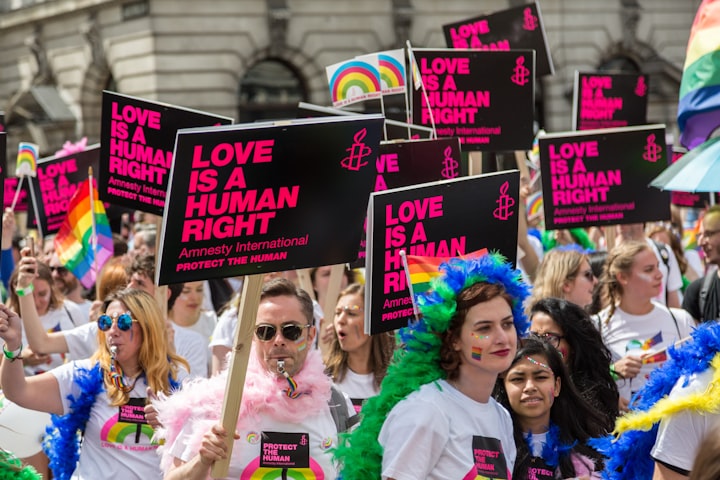
LGBTQ+ Refugees and Asylum Seekers: Providing Support and Safe Spaces for a Vulnerable Population
Introduction:
In recent years, the plight of LGBTQ+ refugees and asylum seekers has gained increasing attention worldwide. These individuals flee their home countries due to persecution based on their sexual orientation or gender identity, seeking refuge and safety in more accepting societies. This essay sheds light on the experiences of LGBTQ+ refugees and asylum seekers, with a specific focus on the United States, while emphasizing the importance of providing support and safe spaces for this vulnerable population.
The Harsh Reality of Persecution:
LGBTQ+ individuals in many parts of the world face discrimination, violence, and legal prosecution solely based on their sexual orientation or gender identity. In some countries, homosexuality is criminalized, and individuals can face imprisonment or even death. This hostile environment forces many LGBTQ+ individuals to make the difficult decision to leave everything behind and seek asylum in countries where their human rights are respected.
Challenges and Vulnerabilities:
The journey of LGBTQ+ refugees and asylum seekers is often fraught with numerous challenges and vulnerabilities. First and foremost, these individuals must navigate the complex and arduous process of seeking asylum, which involves proving their persecution and the legitimacy of their claims. This process can be overwhelming, emotionally draining, and may take several years to resolve.
Furthermore, LGBTQ+ individuals face unique risks during their journey. They are particularly vulnerable to physical and sexual violence, exploitation, and trafficking. Often, they must hide their sexual orientation or gender identity, fearing persecution even in transit countries. This constant state of vulnerability takes a toll on their mental and emotional well-being.
The Importance of Support:
Providing support to LGBTQ+ refugees and asylum seekers is not only a matter of compassion but also a legal and moral obligation. The United States has a long-standing tradition of offering refuge to those escaping persecution and has made progress in recognizing the specific challenges faced by LGBTQ+ individuals.
First and foremost, comprehensive and LGBTQ+-inclusive asylum policies should be developed and implemented to ensure a fair and just asylum process. This includes sensitivity training for asylum officers and immigration judges to understand the unique experiences and needs of LGBTQ+ individuals. Furthermore, clear guidelines should be established to prevent discrimination and bias during the adjudication of LGBTQ+ asylum cases.
Safe Spaces and Community Support:
Creating safe spaces and providing community support is crucial in helping LGBTQ+ refugees and asylum seekers rebuild their lives. LGBTQ+ organizations and NGOs play a vital role in offering shelter, legal assistance, mental health services, and social support to these individuals. These safe spaces foster a sense of belonging, provide access to crucial resources, and empower individuals to advocate for their rights.
Collaboration between government agencies, NGOs, and community organizations is essential to ensure a coordinated response to the needs of LGBTQ+ refugees and asylum seekers. By working together, these entities can provide comprehensive support systems that address housing, healthcare, education, and employment needs, enabling individuals to integrate successfully into their new communities.
Education and Awareness:
Education and awareness are powerful tools in combatting discrimination and fostering acceptance of LGBTQ+ refugees and asylum seekers. Educational programs can be implemented in schools, colleges, and local communities to dispel misconceptions and stereotypes surrounding sexual orientation and gender identity. By raising awareness of the challenges faced by LGBTQ+ individuals and sharing their stories of resilience and bravery, empathy and understanding can be cultivated.
Conclusion:
LGBTQ+ refugees and asylum seekers face unique challenges as they flee persecution in their home countries. The United States and other countries must recognize their vulnerability and provide support systems that address their specific needs. By developing comprehensive asylum policies, creating safe spaces, and fostering community support, we can ensure that LGBTQ+ refugees and asylum seekers find the safety, acceptance, and opportunities they deserve. Moreover, education and awareness initiatives can help reshape societal attitudes





Comments
There are no comments for this story
Be the first to respond and start the conversation.